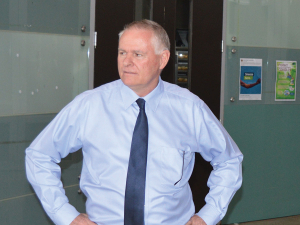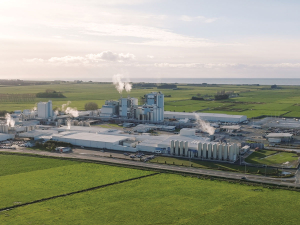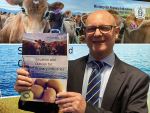I have been silent recently about media releases as we wanted to honour a request from Theo Spierings to "keep it in the family." Obviously that message did not get through to your correspondents.
In Mark Townshend's article, if he had been asked to write that Fonterra should not be a co-op then his article would have filled the bill. At a recent meeting in Christchurch, Henry van der Heyden apologised for the "board of Fonterra getting it all wrong in 2007" when they advocated splitting our co-op in two with one side 'floated'. Townshend was a part of the strategy then, so I guess the apology applies to him, so why should we listen to him now? He envisages if TAF is a reality there is considerable upside in the value of shares in Fonterra.
In the same issue of Dairy News a London commentator suggests that a doubling of share value is likely. If so then Fonterra will be inundated next February with requests for cessation of supply. This in effect is suppliers 'flight'. In Canterbury there is more potential for this as we have the alternative of Westland and Synlait. Take the potential of this to affect the Darfield development and redemption fades in insignificance as far as risks are concerned. A true co-op cannot operate under a volatile share price and in fact a stable share price is essential, allowing the co-op to perform against what it was put there to do in the first place.
Townshend's catchcry is shareholder wealth. A strong milk price gives us just that as the good milk price is transferred to the value of our farms. Leaving a little on the table means detracting from 100% ownership and control, something all board members subscribe to. If shareholders wealth is of such importance then Fonterra does not have to deliver a milk price, they just have to say they will match Westland Co-op. Where have we heard this before? In dairy processing we already have the models Townshend aspires to and what have they achieved thus far?
In New Zealand we don't have to supply a co-op. But if you do there are some requirements. All suppliers have to be treated equally over time. No co-op in history has survived more than five years when it has meddled with trying to elevate the value of its shares. As share value increases suppliers will look to get their hands on the cash. At the moment the only way to do this is to change their milk processor. Fonterra will be the only institution that pays its suppliers handsomely to depart.
If we are to deliver larger dividends we can only do this by keeping our stainless steel full and we have to encourage new suppliers to come our way. This is done by giving up to five years to buy the newly valued shares and even to encourage contract milk and, as the going gets tougher, no share requirement at all. And so our co-op is history. Is this what we want? The only mum-and-pop investors I want in Fonterra are those who start their day at an ungodly hour to milk their cows and supply our co-op. They once were 'peasants' but now they have affluence everyone wants a part of the action.
David Gasguoine says the Shareholders Council has consulted and listened to us. When was this? They couldn't because they were gagged by the board with a confidentiality agreement. We are all out of step but him. We never stood for elections; please read the results of the latest elections.
I extend a warm welcome to you all in the debate on TAF. Isn't it great that we can have this debate because we are all passionate about Fonterra and the great things it has done for dairy farmers. It is great that you help me sharpen my arguments and I thank you for that. I just want to prepare my 'if onlys.' I am worried that Sir Henry will deliver our co-op to its crucifixion at the hands of the NZX and all I can do is watch to see what they will do with their 30 pieces of silver.















